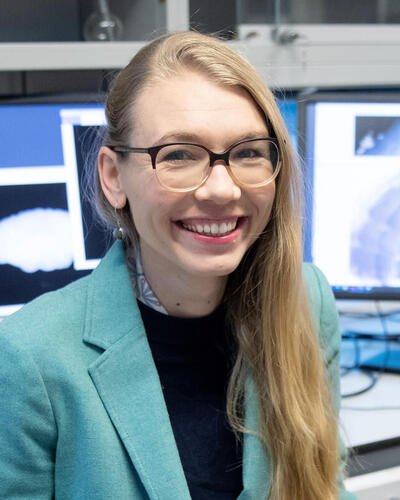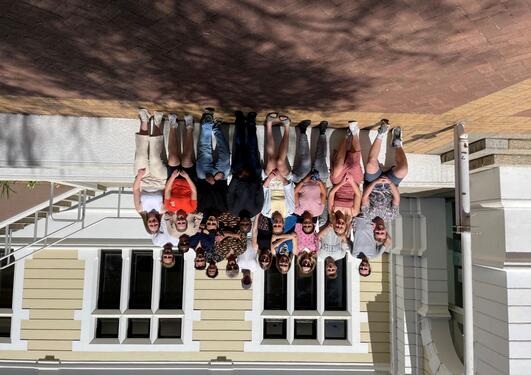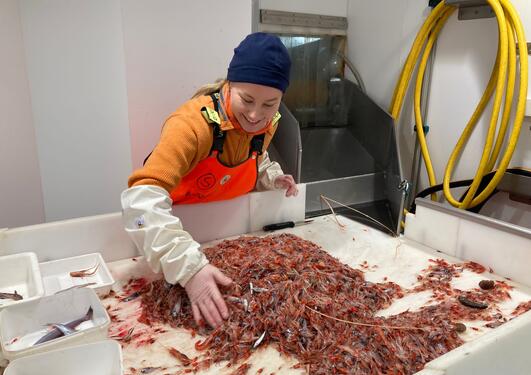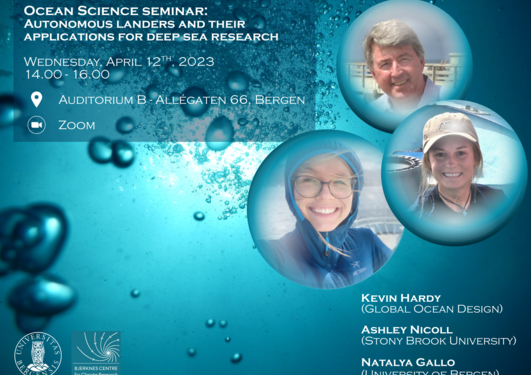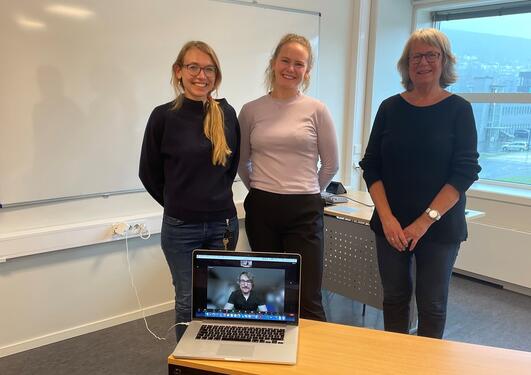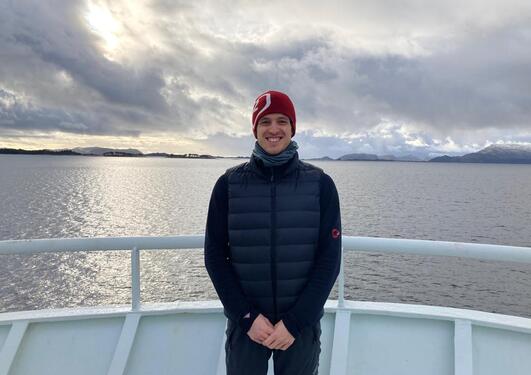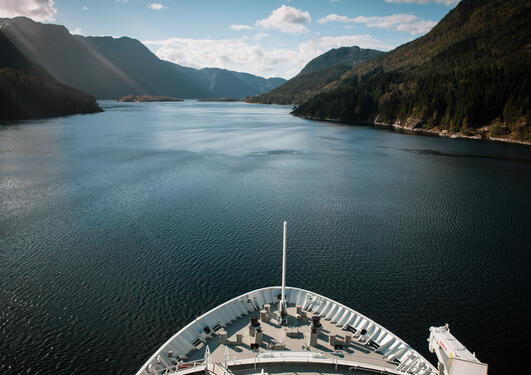Natalya Gallo
- E-mailnatalya.gallo@uib.no
- Phone+47 92207479
- Visitor AddressThormøhlens gate 53 A/B5006 Bergen
- Postal AddressPostboks 78035020 Bergen
Natalya Gallo is a marine ecologist and biological oceanographer in the Fjord and Coastal Ecology research group at the Department of Biological Sciences, and is an affiliate of the Bjerknes Centre for Climate Research. Her current research focuses on the relationship between dissolved oxygen and deep sea community ecology and how climate-driven oxygen loss affects mesopelagic and seafloor-associated communities in West Norwegian fjords.
She is working with Dr. Anne Gro Salvanes as part of the HypOnFjordFish project, where she leads WP4 on changes in community structure and trophic interactions under hypoxia. She also collaborates with colleagues at the Institute of Marine Research, UiB's Geophysical Institute, and NORCE as part of the CLIFORD Strategic Grant, where she leads WP3 on biophysical interactions.
Her tasks involve research cruise participation, deep sea community analysis, trophic analysis, trace element analysis of otoliths, supervision of Fisheries and Marine Biology Master students, and teaching in BIO325 and SDG214.
Prior to arriving to Bergen, she lived in San Diego, California where she received her M.S. and Ph.D. from the Scripps Institution of Oceanography at UC San Diego. Her Ph.D. research examined how ocean deoxygenation affects deep sea fish community ecology, with a focus on oxygen minimum zones and eastern boundary upwelling systems. She received the UCSD Chancellor's Dissertation Award for Oceanography and was recognized as a Forbes 30 Under 30 honoree for her Ph.D. work. After receiving her Ph.D., she worked as a quantitative fisheries and ecology postdoc with the CalCOFI Program at the Scripps Institution of Oceanography and the NOAA Southwest Fisheries Science Center.
Her overarching interest is in how climate change impacts fish communities and fisheries and how scientific research can support sustainable ocean management and development. She is passionate about the science-policy interface and has participated in seven climate- and ocean-focused United Nations Conferences, and took part in the SDG Bergen Initiative at UiB. She is involved in the Early Career Ocean Professionals group of the UN Decade of Ocean Science for Sustainable Development, the Deep Ocean Stewardship Initiative Climate Change working group, and the Research Coordinated Network for Evolution in Changing Seas. She is also on the advisory council for the Norway-Pacific Ocean-Climate Scholarship Programme, an interdisciplinary PhD programme between the University of Bergen and the University of the South Pacific.
- (2023). Otoliths of marine fishes record evidence of low oxygen, temperature and pH conditions of deep Oxygen Minimum Zones. Deep Sea Research Part I: Oceanographic Research Papers.
- (2022). Microbiomes of Hadal Fishes across Trench Habitats Contain Similar Taxa and Known Piezophiles. mSphere. 15 pages.
- (2021). A new way forward for ocean-climate policy as reflected in the UNFCCC Ocean and Climate Change Dialogue submissions. Climate Policy. 1-19.
- (2023). Toktrapport fra økosystemtokt i Vestlandsfjordene — Hydrografi, vannkjemi, reker, krill, bunnfisk, tobis og perifylla. 2023 - 11. 2023 - 11. .
- (2022). Norwegian fjords and climate change.
- (2011). Ocean Acidification in the NE Atlantic, Arctic and Baltic Waters - Another reason for enhancing the ambition for urgent CO2 emissions reduction.
- (2022). Hva betyr klima for vannutskiftning? .
- (2023). Trophic impacts of ocean deoxygenation: Disruption of bentho-pelagic coupling in oxygen minimum zone regions.
- (2023). Norwegian fjords as microcosms for examining deep-sea ecosystem responses to climate change and cumulative human stressors.
- (2023). Environmental Drivers of Demersal Fish and Crustacean Community Structure in West Norwegian Fjords.
- (2023). Effects of oxygen loss and increasing jellyfish biomass on the trophic ecology of west Norwegian fjords.
- (2023). Characterizing deepwater oxygen variability and seafloor community responses using a novel autonomous lander .
- (2022). West Norwegian sill fjords as natural infrastructures for investigating consequences of ocean deoxygenation on fish.
- (2023). Five reasons to take the precautionary approach to deep sea exploitation. Communications Earth & Environment.
- (2021). The HypOnFjordFish project - effects of oxygen loss on fish in West Norwegian fjords.
- (2022). Fisheries Surveys Are Essential Ocean Observing Programs in a Time of Global Change: A Synthesis of Oceanographic and Ecological Data From U.S. West Coast Fisheries Surveys. Frontiers in Marine Science. 18 pages.
More information in national current research information system (CRIStin)
